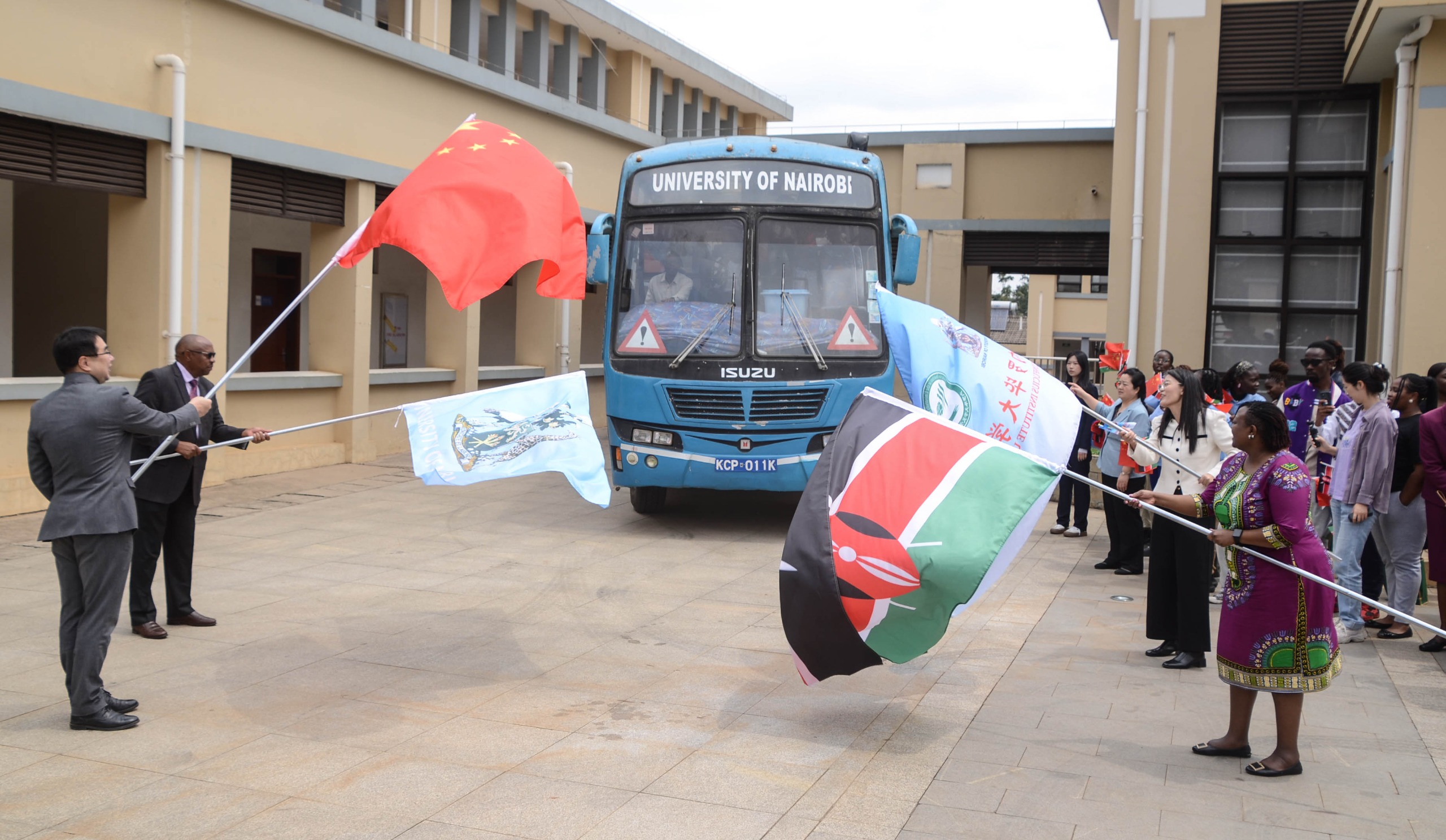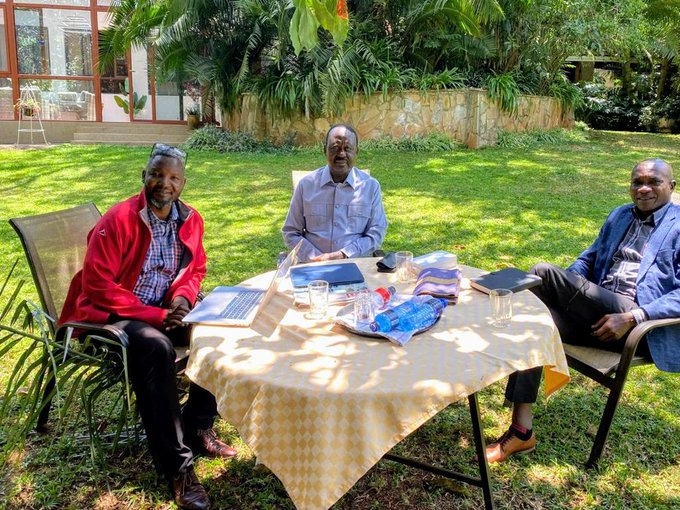![[PHOTOS] China holds massive parade to mark 80th anniversary of WWII](/_next/image?url=https%3A%2F%2Fcdn.radioafrica.digital%2Fimage%2F2025%2F09%2Fbd5dfa7a-3a06-486e-b6b0-6b032c0ffc73.jpg&w=3840&q=100)

The University of Nairobi on Friday flagged off its 2025
cohort of teacher trainees heading to China for further studies in the Chinese
language.
A total of 48 students of the Confucius Institute at UON are
heading to China, of which 20 are to return to the country as the first Chinese
language teachers.
The group which left the country this Friday follows another
52 who were flagged off by the Chinese Embassy in Kenya last week.
The scholarship program has been hailed as marking a
significant milestone in Kenya’s educational exchange with China.
More could follow in the face of elevated ties between the
two countries after the April talks between President William Ruto and his
Chinese counterpart Xi Jinping.
The event, held at the university’s iconic facility at the
Nairobi Arboretum, celebrated not only the largest single group of scholars
sent to China but also the inaugural cohort of the pioneering 2+2 Joint Program
for International Chinese Language Education.
The atmosphere was electric with the dreams of 48 students
poised to embark on a transformative journey.
Their mission is clear: that is, to return as the first
batch of registered Chinese language teachers in Kenya, filling a critical gap
in the national curriculum.
For them, this was more than a scholarship, but the key to
becoming architects of a new linguistic and cultural bridge between Kenya and
China.
“What began with simple curiosity has now become a defining
part of my journey. We began with eager minds, not knowing a thing about the
language. But today, we can hold a simple conversation with a Chinese person,
proving that language is truly a bridge that brings people together,” Leah
Muthoni, who is among the students travelling to China, said.
She added: “This programme has transformed us from campus
students to future teachers, equipped to play a role in shaping education and
strengthening cultural ties... In two years, the young men and women you send
to China today will return as the strongest bridge between China and Kenya.”
After their graduation, the 2+2 students will become the
first group of Chinese language teachers who can be registered and recognised
by TSC to teach at secondary school.
The program was designed based on the TSC professional
requirements for teacher registration.
Currently, even so, there are Kenyan Chinese language
teachers in the market.
Kenya and China signed an agreement to cement the exchanges
under the Xi's Global Civilisation Initiative.
The learners join the growing list of thousands of Kenyans
who have benefited from Chinese scholarships.
More than 2,000 have benefited from Chinese scholarships
since Kenya and China established diplomatic ties.
Professor Wang Shangxue, Director of the Confucius
Institute, hailed the progress “our [Confucius Institute’s] greatest
achievement.”
The growth is exponential.
The number of students, teachers and educators sent to China through the Confucius Institute at the University of Nairobi has soared from 96 in 2023 to
a projected 245 by the end of 2025.
The ceremony was graced by Kenya’s top education leaders, each highlighting the program's profound national significance.
But as the stakeholders underscored, this is more than just
numbers but about tangible, life-changing impact.
Carol Hunja, Secretary of the State Department for Higher
Education, expressed excitement that the agreement providing the scholarship
opportunities had moved decisively from paper to practice.
“Most of our agreements with partners remain on paper,” she
noted. “We are happy this is different and dreams are coming true.”
She, along with others like Martin Kosgey of the Kenya
National Qualifications Authority (KNQA), framed the scholars’ departure as a
“collective triumph” for Kenyan institutions.
Lilian Mwangi of the Teachers Service Commission (TSC) said:
“We don't have a single Chinese language teacher registered
on our payroll.”
She underscored the immense professional opportunity
awaiting the returning graduates. “We look up to the young ones travelling.”
Prof Jackson Maalu, speaking on behalf of the University of
Nairobi Vice-Chancellor, said UON Senate recently approved Chinese as a
language option in the varsity’s programs.
“We aim to increase the employability of our graduates,” he
said, positioning the university as a trendsetter in Africa.
He also revealed that more than 400 students from UoN have
already studied in Tianjin, cementing a "win-win partnership."
Speaker after speaker held that the charge of building this
bridge rests firmly on the shoulders of the students.
Zhang Zhizhong, China’s Chargé d'Affaires in Nairobi,
watched the ceremony with a sense of personal pride, recalling the Confucius
Institute as his first stop upon arriving in Kenya in 2018.
“I am proud to watch the baby growing well,” he said,
advising the scholars, reminding them that their purpose extends far beyond
academic grades.
“Much as Chinese companies may pay well, your most important
responsibility is to build the dreams of young people who aspire to learn
Chinese,” he urged.
“Study hard, learn about the history, language and culture
of the Chinese and bring back a lot of stories.”
As the names of students like Kerry David and Cheryl Wambani
were called, the expectations were high.
They are more than students, but are future educators,
cultural ambassadors, and the living testament of a strengthening bilateral
bond.
In two years, they will return, ready to shape the next
generation of Kenyan students and even coach champions for the Chinese Bridge
competition.













